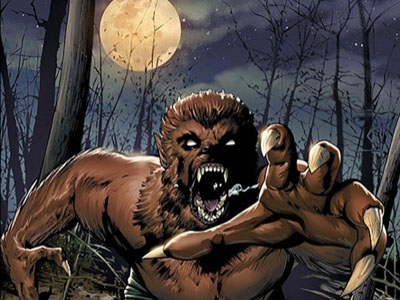In his Bizarre Diseases of the Mind, Dr. Richard Noll lists the traditional traits of the lycanthrope:
- The belief that they are wolves or wild dogs.
- The belief that they have been physically transformed into animals with fur and claws.
- Animal-like behavior, including growling, howling, clawing, pawing, crawling on all fours.
- The desire to assault or kill others.
- Hypersexuality, including the desire to have sex with animals.
- Use of a hallucinogenic substance to achieve the metamorphosis of human into a wolf.
- A desire for isolation from human society (stalking the woods, haunting cemeteries).
- The belief that “the devil” has possessed them and provided the power that causes the transformation from human to wolf.
A seminal study on lycanthropy from the famous McLean Hospital (temporary residence of both mathematician John Nash and poet Sylvia Plath) reported on a series of cases and proposed some diagnostic criteria by which lycanthropy could be recognized:
- A patient reports in a moment of clarity or looking back the he sometimes feels as an animal or has felt like one.
- A patient behaves in a manner that resembles animal behaviour, for example crying, grumbling or creeping.

According to these criteria, either a delusional belief in current or past transformation, or behavior that suggests a person thinks of themselves as transformed, is considered evidence of clinical lycanthropy. The authors go on to note that although the condition seems to be an expression of psychosis there is no specific diagnosis of mental or neurological illness associated with its behavioral consequences.
Of course, there is room to argue that supernatural myths could originate from people relating their experiences of what could be now classified as psychosis. In reality, the interaction between human experience and culture is difficult (perhaps impossible) to separate. Lycanthropy is no different.
Whilst mainstream psychiatry assumes that someone who believes themselves to be an animal is mentally ill, someone who deliberately tries to accomplish the same with psychoactive potions and ritual is considered a shaman in many societies around the world. It seems context is critical even for the most unusual of beliefs
